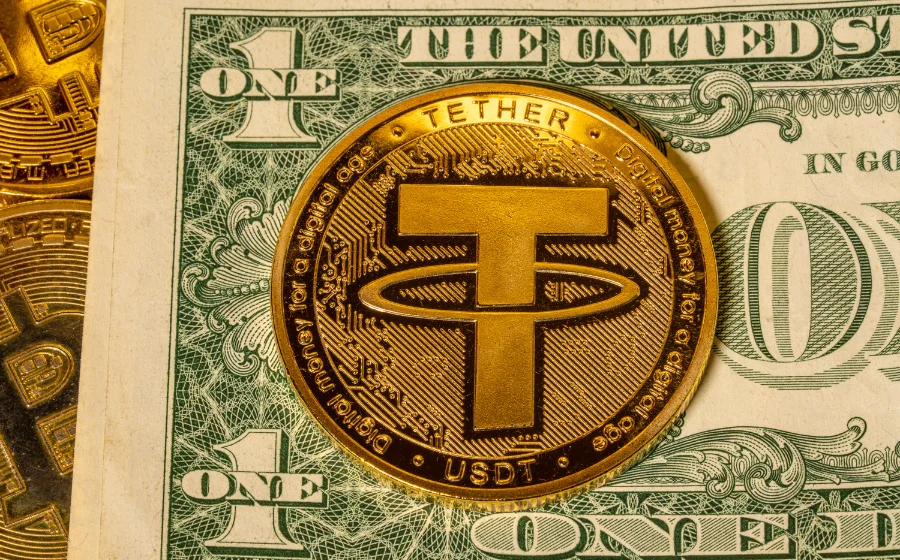
KEYTAKEAWAYS
- Don't Rush: Take time to research and verify investment opportunities to avoid hasty, regrettable decisions.
- Don't Trust Easily: Be skeptical of investment advice from online strangers and unknown sources.
- Don't Authorize: Only use official websites through verified search rankings and never authorize unknown platforms.

CONTENT
Learn how to identify and avoid common cryptocurrency scams. Follow the Three No’s rule to stay safe and protect your assets. Stay informed and vigilant as scam tactics evolve.
WHAT IS CRYPTO SCAM?
Blockchain is an innovative technology used for recording data. Its characteristics of transparency, decentralization, and permissionless access are reshaping the history of the internet. Cryptocurrency (also known as virtual currency) is a significant application of blockchain technology. Due to its high price volatility and the potential for high returns for early adopters, many people, despite not fully understanding the cryptocurrency industry, have misconceptions such as “Bitcoin is easy money” or “mining can yield huge profits.”
In reality, most “crypto scams” have nothing to do with “cryptocurrencies” or “blockchain.” Criminal organizations merely use the term “cryptocurrency” to deceive, tricking victims into voluntarily transferring their funds directly into the scammers’ pockets.
Cryptocurrencies and blockchain technology are neutral. Criminal groups exploit the misconception that “new technologies are highly profitable” and use it as a pretext to scam people out of their money. If we strip away the “cryptocurrency” facade, the scam techniques are similar to traditional scams involving ATMs, phone calls, or online shopping. They all amplify the victim’s greed, fear, and anxiety about missing out, leading people to irrationally hand over their funds to the criminals.
>>> More to read : 4 Trusted Crypto Market Live Trackers for Staying on Trend
4 MOST COMMON CRYPTO SCAMS
Criminal organizations go to great lengths to make their scams difficult to detect. They often use private messages, paid advertisements, and fake links as the first steps in their schemes. These dubious sources typically employ one of the following four cryptocurrency and blockchain-related scam tactics, enticing you into their trap.
1. Fake Exchanges
The first scam involves fake exchanges that look and function like legitimate cryptocurrency exchanges. You can even trade and seemingly earn profits on these platforms. However, unlike genuine exchanges, the features offered by fake exchanges are entirely fake, and any funds deposited cannot be withdrawn. They often use excuses like “tax payments required,” “account frozen due to illegal activity,” or “account upgrade needed” to swindle more money from you before you realize it’s a scam.
- Remember: No legitimate exchange will ask for additional fees upon withdrawal.
2. Fake Investment Advisors/Institutions
Criminals may pose as investment advisors or professional institutions, claiming they can help you earn quick profits through AI trading or quantitative arbitrage. They entice you to hand over your funds for them to manage. Initially, they might allow you to withdraw some profits to gain your trust, but once you deposit a significant amount, they will block your withdrawals with various excuses, and your funds will be gone for good.
- Common Tactic:
They might privately message you, inviting you to join a LINE group where you see numerous success stories. These stories are usually generated by bots to convince you to join them. Asking about the legitimacy of the investment team within the group will only lead you deeper into the scam.
- Key Principle:
No professional team operates solely through LINE groups. Legitimate investment funds have official websites and can be verified through government websites. Professional advisors use large trading platforms or live streams to guide and share market insights, charging membership fees or commissions without asking you to transfer funds directly to them.
3. Fake Investment Opportunities
These involve promoting nonexistent or worthless early-stage cryptocurrencies or projects, often called “air coins.” Scammers will recommend a “once-in-a-lifetime” early project, promising hundredfold or thousandfold returns if you invest. Once you invest, you may receive nothing, or you might end up with useless cryptocurrency or NFTs.
- Market Reality:
The only widely recognized mainstream cryptocurrencies are Bitcoin and Ethereum, and the days of thousandfold returns are long gone. Early investment opportunities are generally reserved for high-net-worth individuals or institutions. If an unknown early investment opportunity is presented to you, asking for funds and lacking verifiable information, it’s likely a scam.
- Investment Rule:
Investing in projects you don’t fully understand exposes your funds to unknown risks.
4. Fake Official Links
This scam targets individuals within the crypto community by using phishing websites, fake official emails, or fake official apps to steal your cryptocurrency.
- Phishing Websites:
These mimic the functionality and interface of official websites, with URLs that are hard to distinguish from the real ones, tricking you into registering and authorizing your wallet.
- Fake Official Emails:
These use official-like language and similar email addresses to request personal information or wallet mnemonic phrases to access your assets.
- Fake Official Apps:
These pretend to be official applications but often carry viruses that can hack valuable information from your computer.
- Common Factor:
They all provide a “fake link” to lure you into their trap, making you unknowingly hand over control of your wallet. The best way to access official websites is through Google’s natural search results, not through private messages, emails, or social media platforms like Twitter.
By staying vigilant and cautious, you can protect yourself from falling victim to these common cryptocurrency scams.
>>> More to read : 4 Easy Ways to Master Crypto Day Trading
HOW TO AVOID CRYPTOCURRENCY SCAMS
- Don’t Rush
Many scams deliberately give you little time to think, pushing you to make hasty decisions. When faced with limited-time or limited-quantity investment opportunities, do not risk losing all your assets by jumping in without due diligence. Take a step back, search for more information on Google, ask questions in third-party communities, and review other scam cases.
- Don’t Trust Easily
Do not trust online strangers who provide you with investment information. Regardless of how long you’ve interacted with them, they remain strangers. Trusting an online acquaintance’s investment advice and linking to unknown investment websites or groups is as unwise as handing over your money to a stranger. There are many free resources online; conduct thorough research and don’t rely on a single source of information.
- Don’t Authorize
Always access official websites through “Google’s natural search rankings” and only use top-ranked projects on CoinMarketCap. Never authorize your wallet to unknown platforms.
- Stay Informed and Vigilant
Scammers constantly evolve their tactics and methods, adapting their schemes to the changing times. The only way to protect your assets and stay safe from scams is to remain cautious and continuously educate yourself about new threats and scams.


















